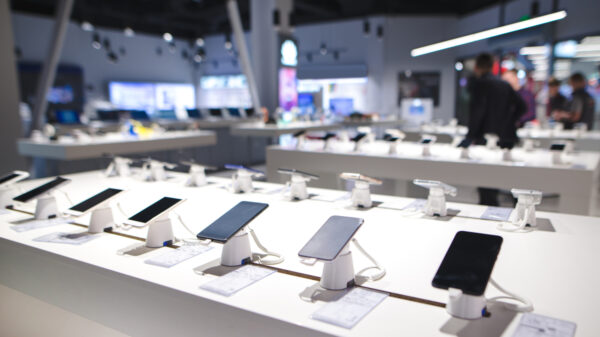The global artificial intelligence market is poised to grow at a compound annual growth rate of 18.45 per cent between this year and 2030, according to a market research study released by Contrive Datum Insights.
In the Middle East, the growth is being propelled by factors like the rapidly increasing Internet penetration rates, a proliferation of smart devices and the growing need for surveillance and monitoring at physical stores.
Also spurring the trend is a slew of government-driven strategies adopted in the UAE, Saudi Arabia, Qatar and Egypt, although much of their momentum was stunted during lockdowns.
For example, to expedite the adoption of artificial intelligence, UAE officials designed the UAE’s AI Strategy 2031 which is hoped to contribute nearly $100 billion, accounting for close to 14 per cent of the GDP.
For retailers, AI-based retail solutions have proved themselves as a perfect tool for enhancing logistics, supply chain operations, warehouse management and levelling up customer experiences by accurately gauging personal customer preferences and behvarior.
In a nutshell, AI-powered personalisation has become a paradigm shift that benefits consumers and businesses alike by bridging the gap between insight and action.
Most revenue in the sector is generated offline, and the trend is here to stay during the forecast period as e-commerce in the region is growing exponentially. The report notes that retailers lean towards this technology, however intimidating at first, due to its potential to drastically speed up and improve store management operations, facilitate merchandising and assortment as well as automate personalised smart product recommendations- key tenets for securing customers loyalty.
“The implementation of AI is helping businesses become more customer-centric, efficient, productive and competitive in both local and regional markets,” CEO of ITHCA Group, Said bin Abdullah Al Mandhari, told Oxford Business Group.
Another advantage AI-based solutions are reduced cost. It can save retailers a staggering $340 billion within current deployments, according to a global study by French consulting company Capgemini.
This trend might have spelt doom for workers but the report dispels these fears of potential major job losses due to AI deployment. In fact, 71 per cent of retailers claimed that artificial intelligence was creating jobs today rather than making workers redundant.
Last year, the Economist Impact Unit and Google revealed that artificial intelligence technologies could bring about an additional $320 billion in economic growth in the Mena region by 2030.
Director of the centre of excellence in Applied Artificial Intelligence and Data Science and programme director of the MSc in Artificial Intelligence at Heriot-Watt University Dubai, Neamat El Gayar, said:
“AI and analytics became essential to enterprises due to the shifts in working arrangements and consumer purchasing during the pandemic. As the adoption of these technologies continues, enterprises will continue to learn more about AI, hopefully guiding their efforts moving forward.”













